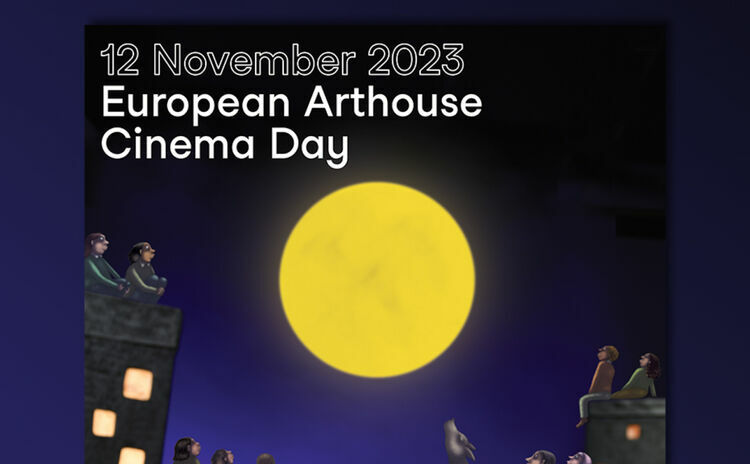Making cinema accessible for all (Part 2)
In the first article, we looked at the evolving legal and policy context and explored the technical tools that support deaf, hard of hearing, blind, and partially sighted cinema-goers. But accessibility is not just about equipment or compliance: it’s about the whole experience.
This second part focuses on what happens beyond the screening room. How can cinemas make their services more visible, understandable, and welcoming? What kinds of training, partnerships, and cultural shifts are needed to ensure that accessibility becomes the norm?
Surveys across Europe consistently point to frustration among cinema-goers. Many are dissatisfied with current accessibility options or with the lack of clear, reliable information about what’s available.
Accessibility is rarely a one-size-fits-all solution. It is shaped by local needs, available resources, and meaningful connections with communities. This calls not only for knowledge sharing, but also for better training, thoughtful communication, and a commitment to inclusion at every level.
Accessible information
Having multiple accessibility solutions available in a single country or region can sometimes create confusion rather than clarity. How do cinemas and audience members know which one to choose? How do you ensure that these devices function properly in your venue? And how do you communicate the availability of these services to your visitors?
Some national associations have published broad guides to support the sector. The Finnish Film Accessibility Forum’s Accessibility Guide for Cinemas, published in 2021, has become a reference document for the industry. In the UK, the Cinema Association (UKCA) has developed more specific resources, including guides for autism-friendly and dementia-friendly screenings.
In France, the Higher Technical Commission for Sound and Images (CST) plays a key role in supporting cinema professionals. It has developed a centralised database to help the industry better understand and manage the wide array of hearing and visual impairment solutions currently available. Together with the National Cinema Centre (CNC), the CST also coordinates the Observatory on Accessibility, which provides training, organises events, and publishes technical and operational documents to help cinemas improve accessibility.
Beyond technical knowledge, training cinema staff is also about soft skills: how to welcome, inform, and support guests with different access needs. In France, the CST collaborates with the association Inclusiv to deliver staff training that goes beyond how to operate equipment and focuses on how to communicate effectively and respectfully. Training initiatives like Ciné Sens are involving exhibitors and cinema-goers identifying as disabled, encouraging debate and the development of practical initiatives.
For cinema-goers, the main challenge often lies in finding accessible screenings in the first place. To help address this, the UKCA has launched Accessible Screenings UK, the first comprehensive and searchable database of accessible screenings in the country. In France, the popular film platform Allociné has partnered with the public accessibility platform Acceslibre.info to offer similar listings, making it easier for audiences to locate cinemas with relevant services.
Content creators are also playing a crucial role in raising awareness. French YouTuber La Manie du Cinéma has produced videos that highlight how accessibility is not just about technical fixes, but also about shifting attitudes and building an inclusive culture throughout the cinema ecosystem. The podcast Handi’Cape & Cinéma also offers a platform for discussing these questions from a disability rights perspective.
Building inclusive cinemas
In spite of the absence of a binding legal framework, cinema operators across the continent have long embraced the mission to become more inclusive.
Autism-friendly screenings, for example, have become more common. The UK has been an early mover on inclusive screenings for autistic audiences, with organisations such as Dimensions, Picturehouse and ODEON pioneering relaxed screenings over 15 years ago. The UKCA supported the Autism Friendly ‘Classic’ Film Festival, organised by Dimensions during World Autism Acceptance Month (WAAM) in April 2025. In Scotland, Glasgow Film Theatre runs the Access Film Club in partnership with the National Autistic Society, offering a space for audiences to enjoy films in a supportive setting. In Ukraine, Planeta Kino in Kyiv organises family-friendly screenings for children on the autism spectrum.
In Poland, the EU-funded project Cinema Without Barriers began in 2022 and has since expanded to cinemas in Slovenia, Romania, Slovakia and Hungary. The initiative supports training and technology adoption linked to accessibility, with a strong emphasis on knowledge-sharing between venues, but also the acquisition of audio-description equipment and the organisation of accessible screenings. It also produced one of the few regional research reports on accessibility in Central and Eastern Europe.
Accessibility can even become a defining characteristic of a cinema’s identity. France’s Fondation Perce-Neige is currently developing an inclusive cinema that aims to only hire people with disabilities. Set to open in 2026, the project plans to employ around seventy staff members with disabilities. The initiative was inspired by the Prospector Theater in the US, a non-profit launched back in 2014. Why? Because 80% of Americans with disabilities do not have a job, and more than one million lost their jobs during the pandemic. 75% of the Prospector’s employees identify as having a disability. The cinema has a wide range of solutions to make the cinema-going experience as accessible as possible, and ensure that everyone feels welcomed and at home.
By integrating accessibility and inclusion into their core values, these projects offer new perspectives and opportunities that can enrich the entire cinema-going experience.
What can I do?
For operators eager to enhance accessibility, a good starting point is a thorough assessment of your venue and services. Improvements like clear signage, accessible seating arrangements, and staff awareness can already make a significant difference. Investing in technology can be done gradually, prioritising solutions that reflect your audience’s preferences and match your operational capacity.
Building a culture of inclusion within your team is equally important. Regular training sessions covering both technical skills and customer service can empower staff to confidently support guests with disabilities. Making information about available services easy to find, both online and in your venue, is also key. Collaborating with other organisations can help share knowledge and pool resources.
And don’t forget to engage directly with local disability organisations and audience members to better understand the specific barriers they face. They hold the expertise on what works and what doesn’t.
The Hub recently featured an article by accessibility expert Irene Silvera, sharing best practices on how to make your cinema more accessible. Her guide is a great place to start.
Keep an eye on the IncluCine initiative, carried by Kino Úsmev in Slovakia and supported by Europa Cinemas’ Collaborate to Innovate programme, which is currently mapping inclusive film activities across the continent.
As you reflect on your cinema’s approach, consider this: accessibility is not a one-time project, but a long-term commitment to welcoming every audience member with respect and care.
Conclusion: an ongoing journey requiring collective effort
Progress on cinema accessibility remains slow and uneven. This is partly because accessibility involves so many moving parts. Fair pricing is another key consideration, as many disabled audience members require a companion. The UK’s CEA Card scheme is a strong example, offering a free ticket for a carer at participating cinemas. Such initiatives help reduce financial barriers and can mean the difference between staying home and enjoying a night out.
For every visitor who feels at home in your cinema, there may be more waiting to be welcomed in.
Implementing accessibility measures can be costly, particularly for smaller cinemas. Public support and investment will be vital to accelerate progress and ensure no one is left behind.
CICAE plans to launch a dedicated accessibility project as part of the next European Arthouse Cinema Day, so watch this space for updates.
If you have initiatives to share, please get in touch!
01.01.1970

Guillaume Branders
Guillaume Branders is the founder of studio funambule, a consultancy that helps film and cinema professionals connect, grow, and innovate. Based in Belgium, he has been immersed in the cinema industry for almost 15 years. Starting at Cinema Aventure, an arthouse venue in the center of Brussels, he later worked as the Head of Industry Relations at UNIC, the trade association of European cinemas and their national associations. After two years working for a cinema software company, he decided to launch his own venture and explore new ways to drive innovation in the cinema industry. more from the author


